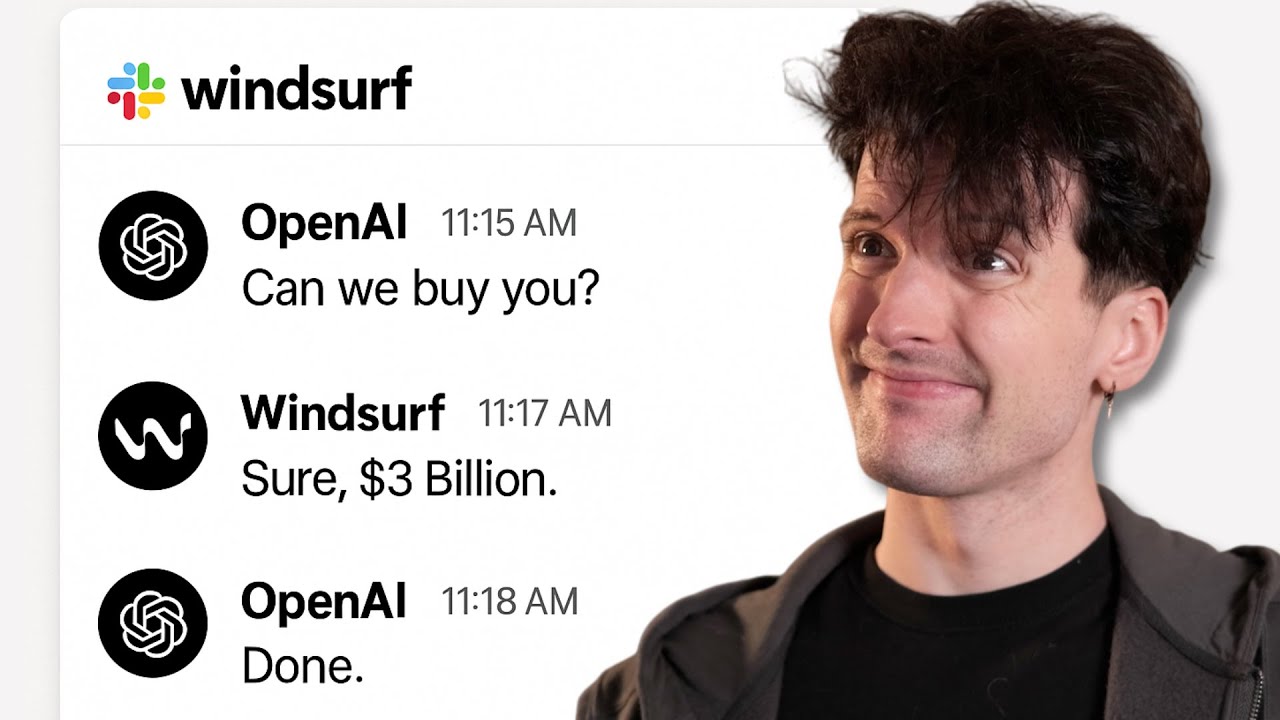OpenAI’s acquisition of Windsurf, a highly valued VS Code-based AI coding platform, is a strategic move to strengthen its position in the developer tools market and compete with rivals like Anthropic. By integrating Windsurf’s advanced AI-assisted coding technology, OpenAI aims to expand its ecosystem, attract more developers, and potentially open-source the platform to boost adoption and innovation.
The video explores the surprising valuation of VS Code forks, particularly focusing on Windsurf, which was acquired for around $3 billion. It highlights the growing trend of AI-enhanced code editors based on VS Code, an open-source platform built by Microsoft and GitHub. VS Code’s extensibility and performance, especially through Monaco.js, have made it a popular foundation for developing browser-based code editors. Despite its open-source nature, the ecosystem has become chaotic, with various startups creating specialized editors and extensions to improve coding workflows using AI.
The speaker delves into the history of VS Code and its significance as the most popular IDE globally, emphasizing its open-source status, which is rare among top editors. Microsoft aimed to make VS Code highly extensible, leading to innovations like GitHub Copilot, an AI autocomplete tool that significantly changed how developers write code. Copilot’s success demonstrated the potential of AI in coding, prompting other startups to develop similar tools, such as Cursor and Kodium, which sought to enhance AI-assisted coding through extensions and agent-based features.
The discussion then shifts to Windsurf (also known as Codium), which was inspired by Cursor and aimed to address limitations in VS Code’s extension platform. Windsurf focused on agentic code editing—using AI to perform complex commands based on natural language descriptions—rather than just autocomplete. The company targeted both beginner and enterprise markets, attempting to serve a broad spectrum of developers. However, Windsurf faced challenges in balancing these audiences, which contributed to its eventual acquisition by OpenAI, as it sought to expand its developer tools ecosystem.
The core reason for OpenAI’s interest in acquiring Windsurf is to dominate the developer market and counteract competitors like Anthropic, which currently enjoys strong developer sentiment. OpenAI aims to leverage Windsurf’s technology to improve its own developer tools, win over more developers, and close the gap with Anthropic’s models. The acquisition is seen as a strategic move to accelerate OpenAI’s efforts in creating a comprehensive, spectrum-spanning developer ecosystem, from beginners to enterprise users, and potentially even open-sourcing Windsurf to further boost developer adoption.
Finally, the video discusses the financial and strategic implications of the deal, noting that OpenAI’s recent funding and valuation make the $3 billion acquisition relatively small in comparison. The move is viewed as a low-risk investment that could significantly enhance OpenAI’s position in the developer tools space. The speaker suggests that open-sourcing Windsurf might be a bold move to further win developer favor and outcompete Cursor, despite potential conflicts with Microsoft’s ecosystem. Overall, the acquisition is framed as a calculated effort by OpenAI to secure its future dominance in AI-powered coding tools and developer sentiment.
